DeepSeek's Surge: Has Baidu Found Itself in a Bind?
![]() 02/16 2025
02/16 2025
![]() 641
641

Robin Li shifts from proprietary large models to embracing open-source solutions.
DeepSeek's recent global acclaim has thrown Baidu, usually unflappable, into a tizzy.
On February 13, Baidu announced that its large model product, ERNIE Bot, would become fully free starting April. The next day, it unveiled another major move: launching the ERNIE Bot 4.5 series in the coming months and officially opening its source code from June 30.
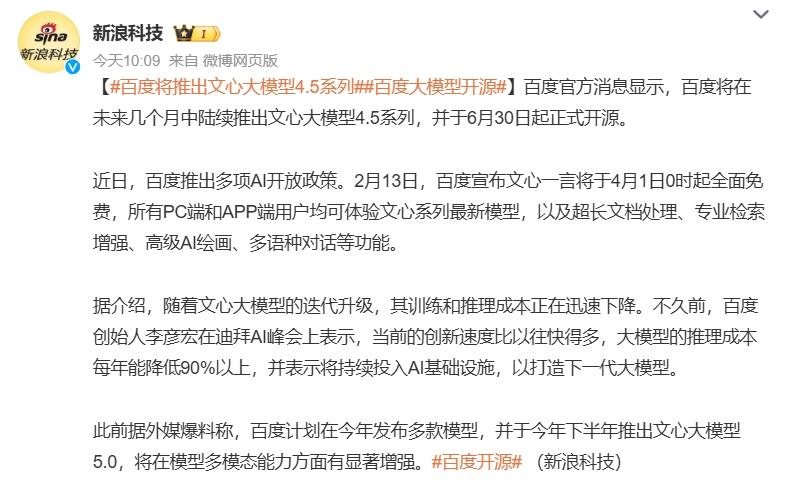
Image source: Weibo screenshot
Prior to these announcements, Shen Dou, president of Baidu's Intelligent Cloud Business Group, stated at an all-hands meeting that the "malicious" price war among domestic large models last year had led to the industry's overall revenue being significantly lower than that of foreign counterparts. These remarks were interpreted by some as a veiled criticism of competitors.
In response, Tan Daifa, president of ByteDance's Volcano Engine, hinted on his WeChat Moments that price reductions in large models were achieved through technological innovation and urged everyone to focus on fundamentals like DeepSeek rather than making unfounded speculations.
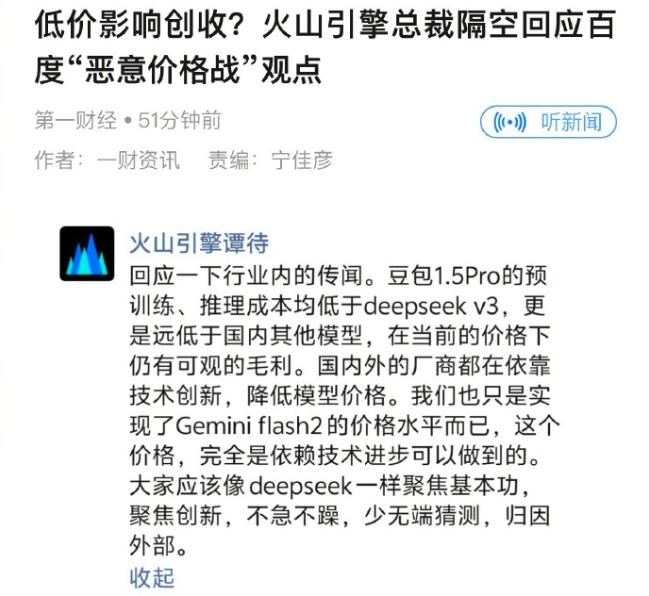
Image source: China Business News screenshot
Various signs indicate that Baidu is attempting to regain the initiative in the fiercely competitive AI market through a series of strategic changes.
01. Is Baidu in a Hurry?
Historically, Baidu has prioritized commercialization and profitability. Its sudden decision to make ERNIE Bot free is indeed surprising.
According to "Qujiexieshangye", after releasing ERNIE Bot 4.0 in November 2023, Baidu officially launched a membership service for the professional version, charging 49.9 yuan per month for continuous use and 59.9 yuan for a single-month purchase. Additionally, Baidu introduced a joint membership of ERNIE Bot 4.0 + ERNIE Box Silver priced at 99 yuan/month and later expanded to include joint memberships with other platforms.
This made ERNIE Bot the first large model product in China to adopt a membership model and charge C-end users. After initially tasting success with this model, Baidu launched the ERNIE Bot 4.0 Tool version and the ERNIE Bot 4.0 Turbo in April and June 2024, both requiring a fee for use.
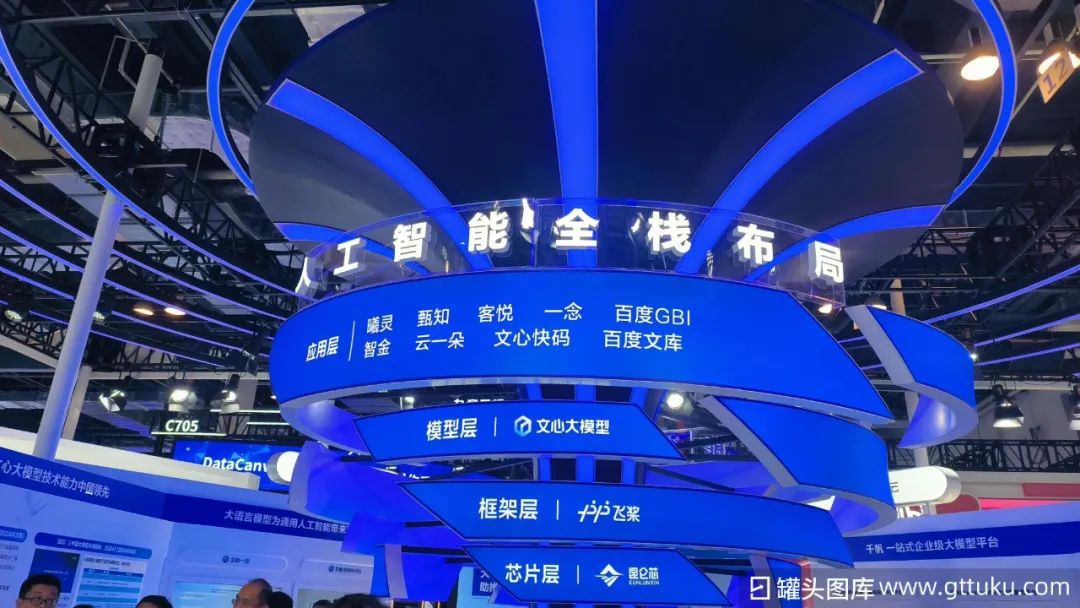
Image source: CanTouTuKu
The membership model positioned ERNIE Bot at the forefront of the industry in terms of commercialization revenue. However, in terms of user scale, ERNIE Bot lagged behind other competitors. According to January data from "AI Product Ranking", Wen Xiaoyan (formerly ERNIE Bot) had a MAU (Monthly Active Users) of 13.05 million, ranking fourth after Doubao, DeepSeek, and Kimi.
Based on previous data, Wen Xiaoyan's MAU has hovered around 13 million since November 2024. In contrast, DeepSeek, with minimal marketing and promotion, already had 33.7 million monthly active users in January. Furthermore, in January 2025, DeepSeek's website traffic exceeded 256 million, a 22-fold increase from the previous month, far surpassing ERNIE Bot's 14.58 million.
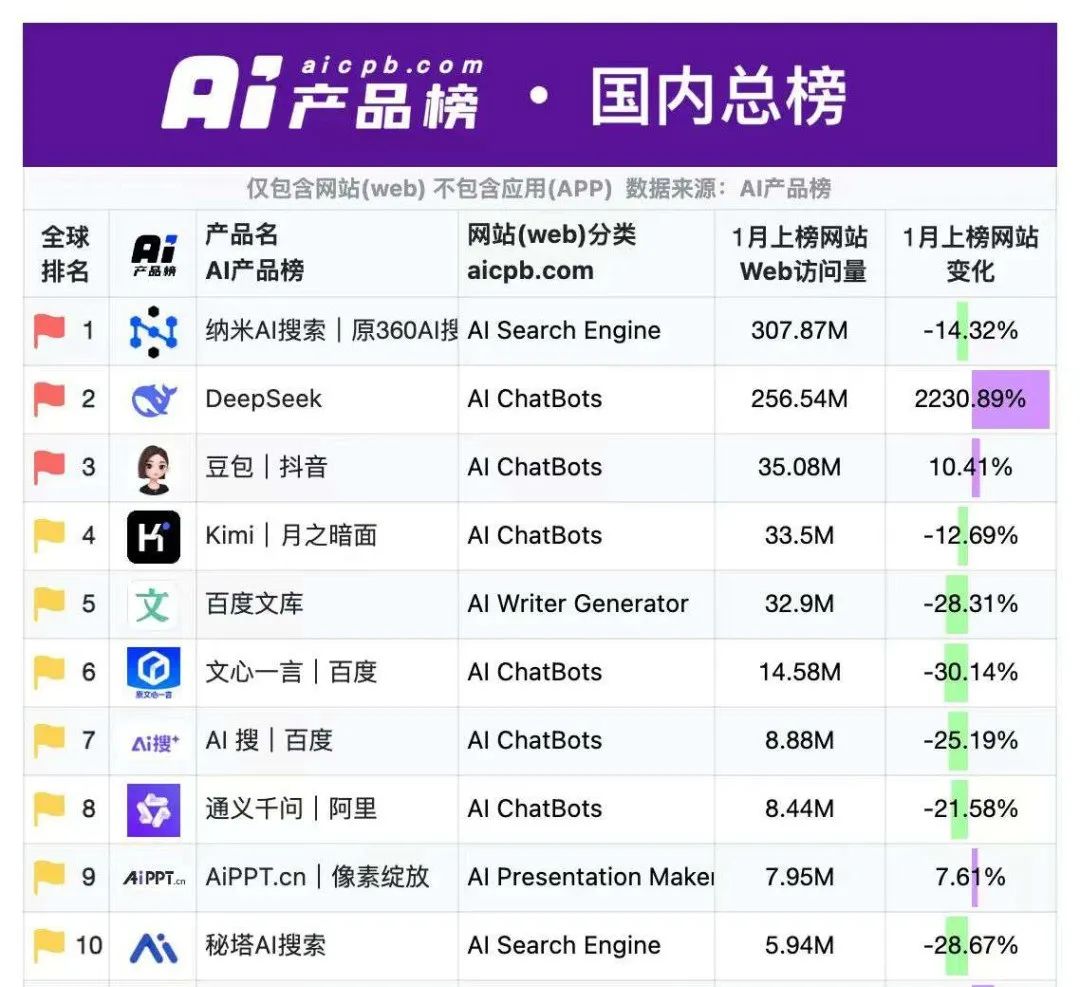
Image source: AI Product Ranking screenshot
Moreover, data suggests that since entering February, DeepSeek's daily active user count has surpassed 30 million, making it the domestic large model with the highest daily active users. With DeepSeek's rapid rise, it poses a significant threat to ERNIE Bot, which is known as "the first domestic generative AI language large model".
Initially, Baidu hoped to lock in high-quality users through ERNIE Bot's membership model and explore commercialization paths for AI large models. However, the sudden rise of the free and open-source AI large model DeepSeek seems to have disrupted this plan. DeepSeek achieved this without significant marketing budgets, making its success even more remarkable.
Facing this situation, if Baidu continues to adhere to the paid membership model for the professional version of ERNIE Bot, its user base may further shrink, ultimately losing market competitiveness. Therefore, Baidu had to proactively adjust its strategy, making ERNIE Bot fully free to attract a larger user base and data feedback, thereby enhancing the model's competitiveness.
02. Early Riser, Late to the Dance?
Undoubtedly, Baidu is one of the earliest internet giants in China to bet big on AI, if not the earliest.
Since establishing the Natural Language Processing Department in 2010, Baidu has been at the forefront of the AI race. It subsequently established the Artificial Intelligence Research Institute, the Artificial Intelligence Laboratory, and the Deep Learning Research Institute, continuously increasing its investment in the AI industry. In June 2016, at the Baidu Alliance Summit, Baidu Chairman and CEO Robin Li delivered a keynote speech titled "The Next Act: Artificial Intelligence", officially establishing AI as Baidu's company-level strategy.
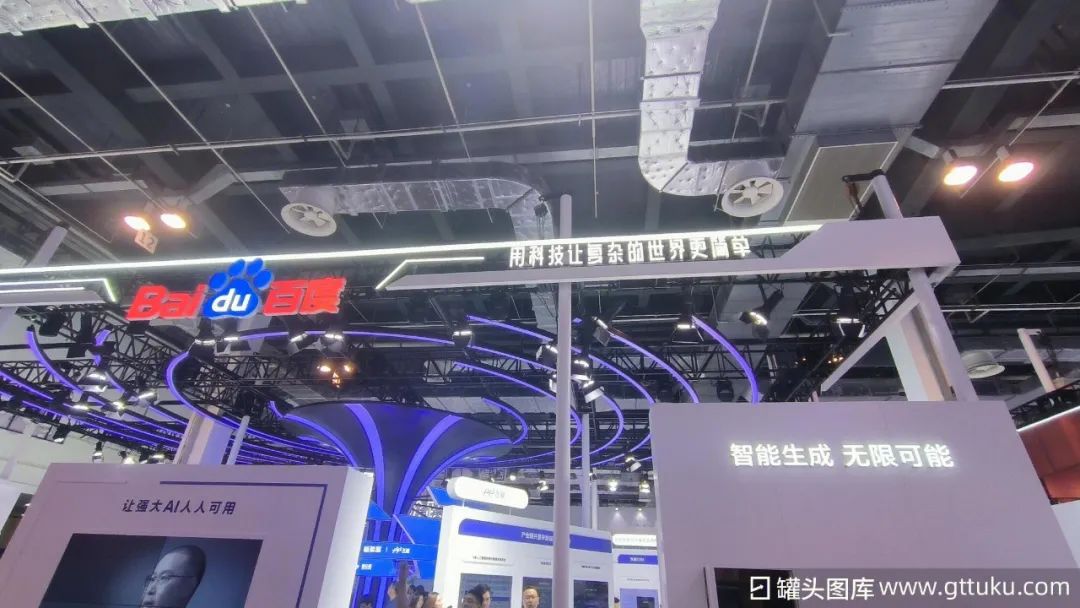
Image source: CanTouTuKu
However, as a crucial part of Baidu's AI strategy, the current predicament of ERNIE Bot seems to reinforce the perception that Baidu is "an early riser but late to the dance", a notion that continues to be validated.
In September 2024, after Apple announced the iPhone 16 series, it also announced full support for Apple Intelligence and planned to launch a Chinese version of Apple AI that year. According to relevant domestic policies, domestic Apple AI must be integrated with domestic large models. Earlier rumors suggested that Baidu's ERNIE Bot was in negotiation processes with Apple for cooperation, and many believed this collaboration was almost a done deal.
However, recently, Alibaba co-founder and Chairman of the Board of Directors Joseph Tsai confirmed that Alibaba would cooperate with Apple to advance AI large model technology, with Alibaba's AI large model deeply integrated into Apple's iOS system to enhance the AI experience on iPhone phones.
Although market rumors persist that Apple is still jointly developing AI functionality for Chinese iPhone users with Baidu to diversify risks, regardless, Baidu's AI business has entered a critical adjustment period.
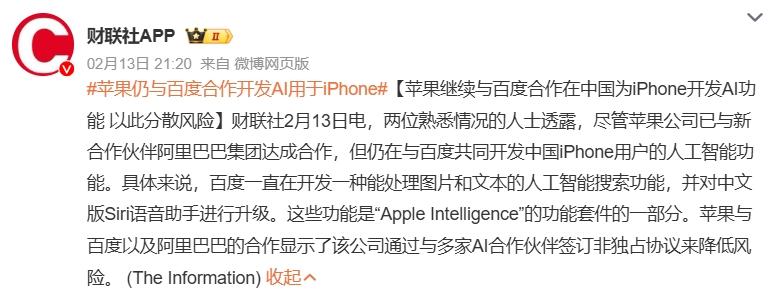
Image source: Weibo screenshot
During the 2024 World Artificial Intelligence Conference in Shanghai, Robin Li stated in a speech, "I believe that open source is actually an IQ tax." "When you rationally consider the value large models can bring and at what cost, you will find that you should always choose a closed-source model. Today, whether it's ChatGPT, ERNIE Bot, or other closed-source models, they are undoubtedly more powerful and have lower reasoning costs than open-source models."
However, "plans can't keep up with changes." Who could have predicted that within less than a year, Baidu would also shift from closed source to open source, possibly driven by the rapid development of the large model industry.
As recently stated at the WGS2025 summit in Dubai, when asked whether DeepSeek was anticipated, Robin Li said, "I believe that innovation cannot be planned; you never know when and where it will strike. What you can do is create an environment conducive to innovation."
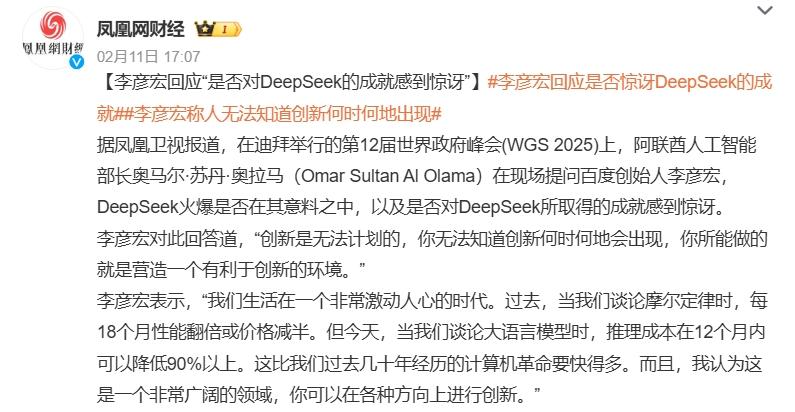
Image source: Weibo screenshot
While announcing free and open-source is a significant strategic shift and demonstrates Baidu's open attitude and technical confidence in the AI field, if it cannot address issues such as insufficient core competitiveness and slow market response, Baidu's AI may continue to struggle for a true breakthrough.
Recently, major companies like Baidu, ByteDance, Huawei, and Tencent have embraced DeepSeek, supporting it on their cloud services. On February 13, Baidu Apollo also announced that the Apollo Smart Cabin large model and travel intelligence agent have completed integration with DeepSeek.
Faced with the impact of DeepSeek's free and open-source offerings, not only Baidu but also other closed-source model players like OpenAI may have to offer greater free incentives to attract users while reconsidering whether to follow the open-source strategy.








